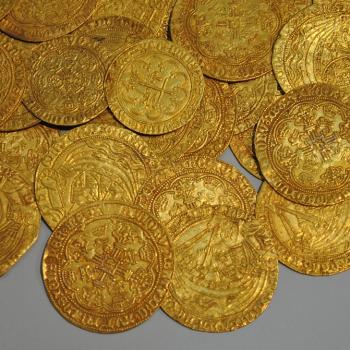The point is not to nitpick President Obama on a day when he is rightly praised for his effective and historic actions as commander-in-chief. The point is, if we fall into credit-claiming and blame-casting too quickly, we will miss out on a more positive message here. Americans should be encouraged that their government can still work together across the aisles and across presidential administrations to achieve something of extraordinary difficulty and significance. And perhaps they can exercise the grace to acknowledge and applaud that this was truly a bipartisan, multi-administration accomplishment.
The overarching narrative that led to Osama bin Laden's capture began—if it did not begin earlier—with the forceful, aggressive, offensive response of the Bush administration to the 9/11 attack. When Bush made clear that those who harbor terrorist networks would share their fate, he eliminated many safe havens bin Laden might have found around the world. When Bush led the military to topple the Taliban, and kept the pressure on al Qaeda through surveillance and drones and special forces, this cut bin Laden off from the organization he ostensibly led. Bush determined that this would be a military and not a law-enforcement matter, and it was indeed the military that captured bin Laden. And when al Qaeda committed itself fully to the war in Iraq, and was decisively defeated by the surge, this constituted a massive blow to al Qaeda's reputation and morale, not to mention killing hundreds of their most committed jihadists.
Even the specific intelligence thread that led to bin Laden's capture spans across the Bush and Obama administrations. Khalid Sheikh Mohammad was captured in 2003, Abu Faraj al-Libbi in 2005, and many more were taken from the battlefields of Iraq and the mountains of Afghanistan. Through their interrogations, American intelligence learned of a particular courier (a protégé of Khalid Sheikh Mohammad and a trusted assistant to al-Libbi) who was highly likely to be found with bin Laden. In 2007, officials learned the details of his identity; in 2009 they learned the general area in Pakistan where the courier and his brother operated; and in August 2010 they found the peculiar compound where three families lived, families that fit the profile for the two brothers and bin Laden himself. In September of 2010 the Obama administration began a series of assessments that increased their confidence that bin Laden was indeed inside the compound, and in February 2011 they began to develop military options. From March 14th to April 28th, President Obama chaired five National Security Council meetings specifically devoted to this operation.
The killing of bin Laden will provide a richly deserved improvement in President Obama's reputation as Commander-in-Chief and a substantial boon to his prospects for reelection. Partisans on the Right would be wise to put that fact aside and celebrate not only that Bush provided many of the conditions for this victory, but that Obama responsibly managed those conditions and effectively brought the mission to completion. In the same way, however, partisans on the Left would be right to acknowledge that credit should be shared with President Bush for degrading al Qaeda, isolating bin Laden, and putting in place the national security policies and processes—even the much-reviled detainee interrogations at Gitmo—that developed the intelligence thread that eventually caught bin Laden.
Americans of all stripes should rejoice that, for all the recent hyper-partisanship of our democratic process, two Presidents from two parties and with very different political ideologies (not to mention thousands of military and government professionals whose careers are not defined by the political seasons) can carry a lengthy and complicated military process to completion, and bring long-delayed justice to the families of those killed in 9/11 and to every American at home and abroad who has lived in fear of the plague of jihadist terrorism. As I like to say, neither party has a monopoly on good ideas or good intentions. And sometimes both parties can work together in the service of one good idea.
The world is a better place without bin Laden, and our children are safer today in the world without him. The murderer of nearly 3,000 innocent men, women, and children has gone to meet his Maker. We have two presidents from two parties to thank for that—and that itself should add to the celebration.





